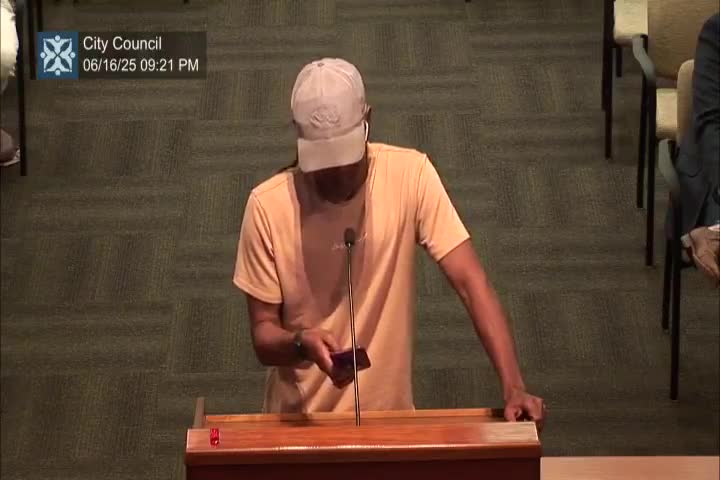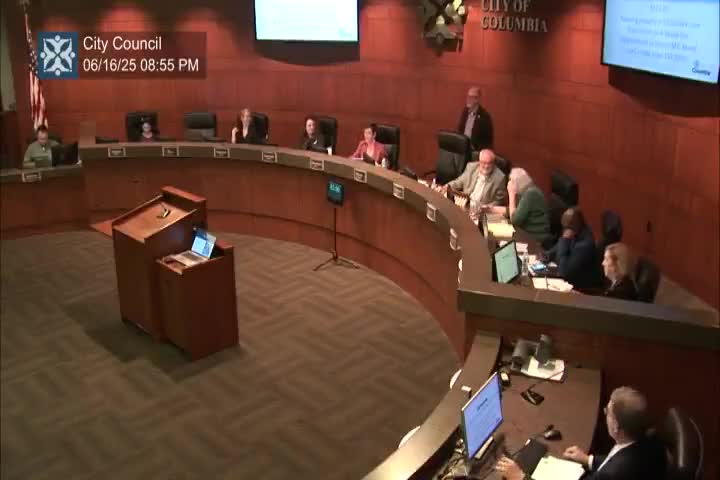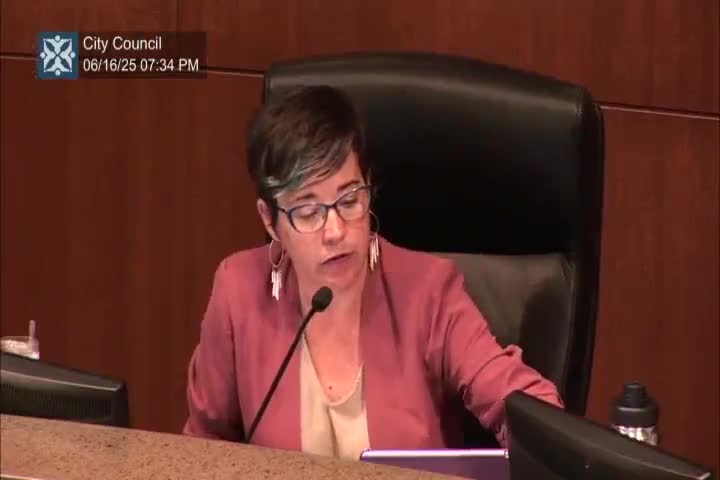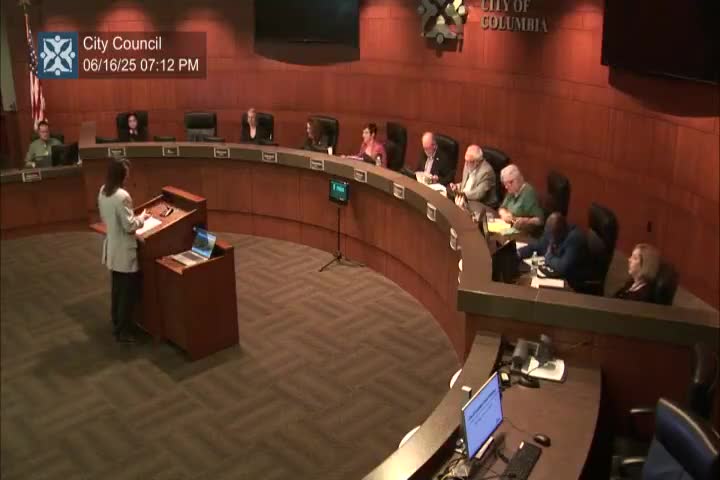Article not found
This article is no longer available. But don't worry—we've gathered other articles that discuss the same topic.

Council denies conditional-use permit for short-term rental at 1617 High Ridge Circle after neighbors cite parking, safety and quality-of-life concerns

Council tables rezoning and preliminary plat for Clark Lane hotel subdivision after neighbor raises access concerns

Columbia council reaffirms original equity language, directs city manager to report on strategic plan metrics

